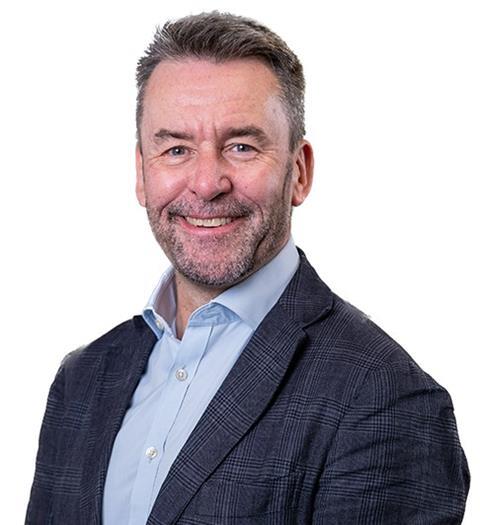Regardless of who forms the next government, the industry needs to change its mindset and create a much bigger skills base to address the challenges that lie before us, says Mark Wild

I am writing this on the eve of the general election after what feels like a very long campaign. Regardless of who forms the next government, infrastructure will be a significant in-tray priority for them.

Major infrastructure projects have the potential to make significant contributions to the UK’s economic goals by supporting local supply chains, creating jobs and fostering skills development. The benefits of good quality and purposeful infrastructure are obvious and well understood. Equally, the key blockers to delivery are also well rehearsed; the need for a stable pipeline, the reform of planning and speed of decision making have been widely discussed.
The key constraint in the whole infrastructure value chain will be whether the workforce has the capacity and capability to deliver the demand that will be needed in the years ahead
However, in my view, even if these issues are removed, the key constraint in the whole infrastructure value chain will be whether the workforce has the capacity and capability to deliver the demand that will be needed in the years ahead.
>> Also read: ��ɫ����TV the Future Commission report: The long-term plan for construction
>> Also read: ��ɫ����TV-the Future Commission: Meet the commissioners – Mark Wild
We are at the beginning of a new industrial revolution and the climate crisis is the defining issue of our age. Not only do we need to address the existential climate challenge but doing so successfully will be the key enabler of economic growth and prosperity. Future successful major economies will be low carbon, as will the dominant global trade flows.
We are in the foothills of this transition. At its heart will be a major infrastructure build. The gap in the number of skilled engineers and craftspeople that we have and need to accomplish this is estimated to be in the order of 250,000 people. These are people with the artisan skills that will always be needed regardless of the emerging benefits of technology and AI.
We have the opportunity now to create the skills base to address this new industrial challenge – but the challenge is huge, and it can only be addressed in a systemic way
The first industrial revolution was built on the efforts of shipbuilders, miners, welders, steelmakers and their like. These skills were also the foundations of cohesive communities.
We have the opportunity now to create the skills base to address this new industrial challenge – but the challenge is huge, and it can only be addressed in a systemic way, by taking a genuine whole-system and multi-decade view.
>> Also read: Paul Ruddick of Reds10: Ask not what the next government can do for construction
>> Also read: Nicola Hodkinson of Seddon: Will Labour’s apprenticeship reforms really solve the skills crisis?
In my time delivering Crossrail, one of the most important breakthroughs was the acknowledgement that complex projects need a high degree of thoughtful coordination and preparation. A good example is high integrity welding. Highly-skilled welders take many years to train and they will be required as much in new nuclear power stations as in new hydrogen production facilities.
Completing these projects requires a coordinated approach, matching the pipeline with the development of the skill base. Regardless of who is in government, this cannot simply be left to the private companies in the supply chain – it is too important and too complex an issue.
There is an opportunity to have many more women joining the talent pool, and more people from backgrounds and communities that have not had a high representation in this sector
Another key perspective is the actual volume of people encouraged to join the effort: it will take all the talents to achieve the extraordinary outcomes that we need.
So we need to change our collective mindset and we must address how we radically increase the number of people entering the infrastructure sector. There is an opportunity to have many more women joining the talent pool, and equally more people from backgrounds and communities that have not traditionally had a high representation in this sector.
This is not tokenism. Rather, it will be essential if we are to get the volume at the base of the labour pyramid. A more diverse workforce will, in the long run, give us a safer and better industry.
Mark Wild is the chief executive of SGN and former chief executive of Crossrail Ltd. He was an adviser to the ��ɫ����TV the Future Commission and has recently been appointed as the new chief executive of HS2 Ltd
Election focus

With the general election fast approaching, the UK is facing some serious problems.
Low growth, flatlining productivity, question marks over net zero funding and capability, skills shortages and a worsening housing crisis all amount to a daunting in-tray for the next government.
This election therefore comes with very high stakes for the built environment and the economy as a whole.
��ɫ����TV’s coverage aims to help the industry understand the issues and amplify construction’s voice so that the parties hear it loud and clear.


























No comments yet